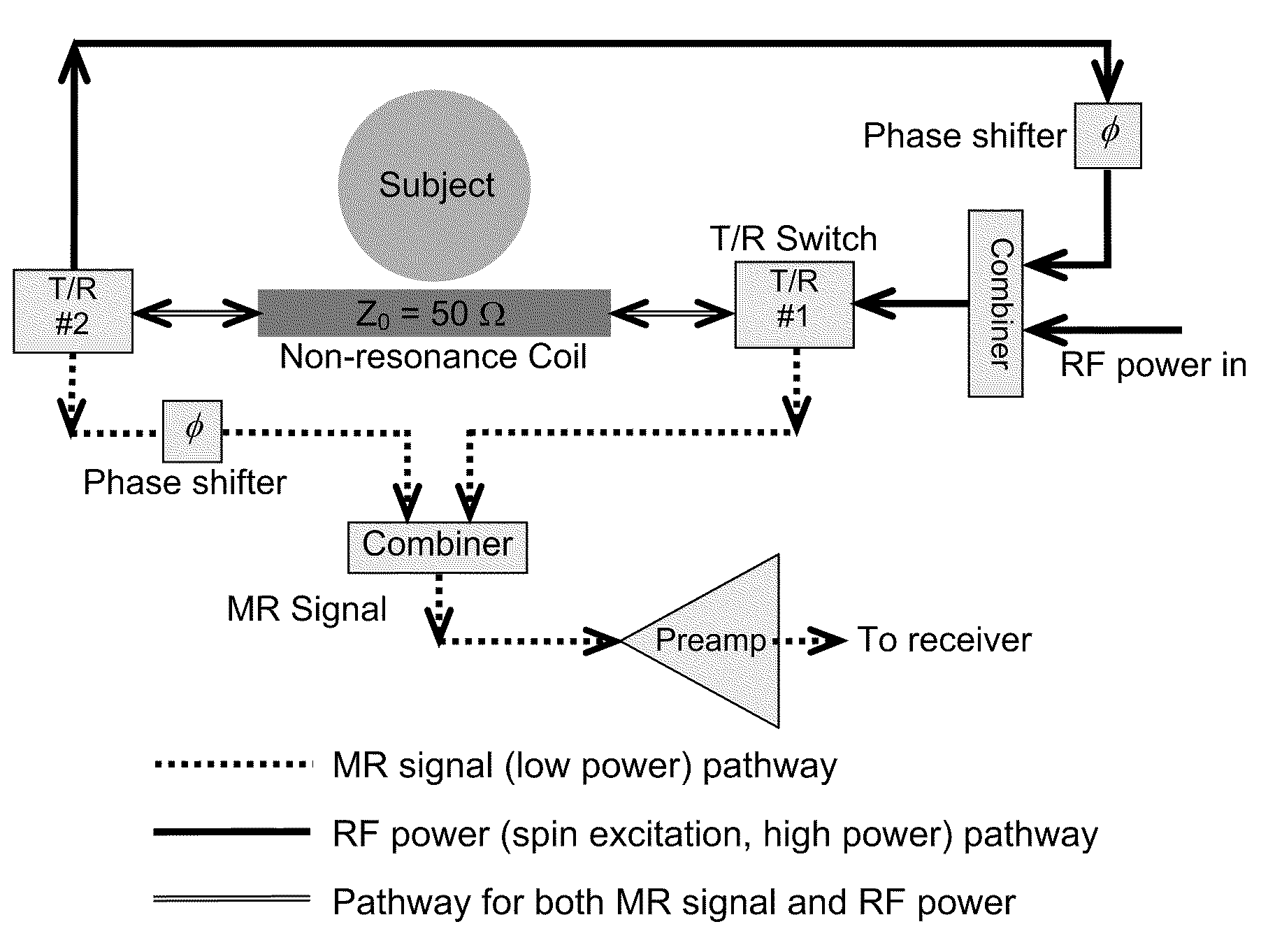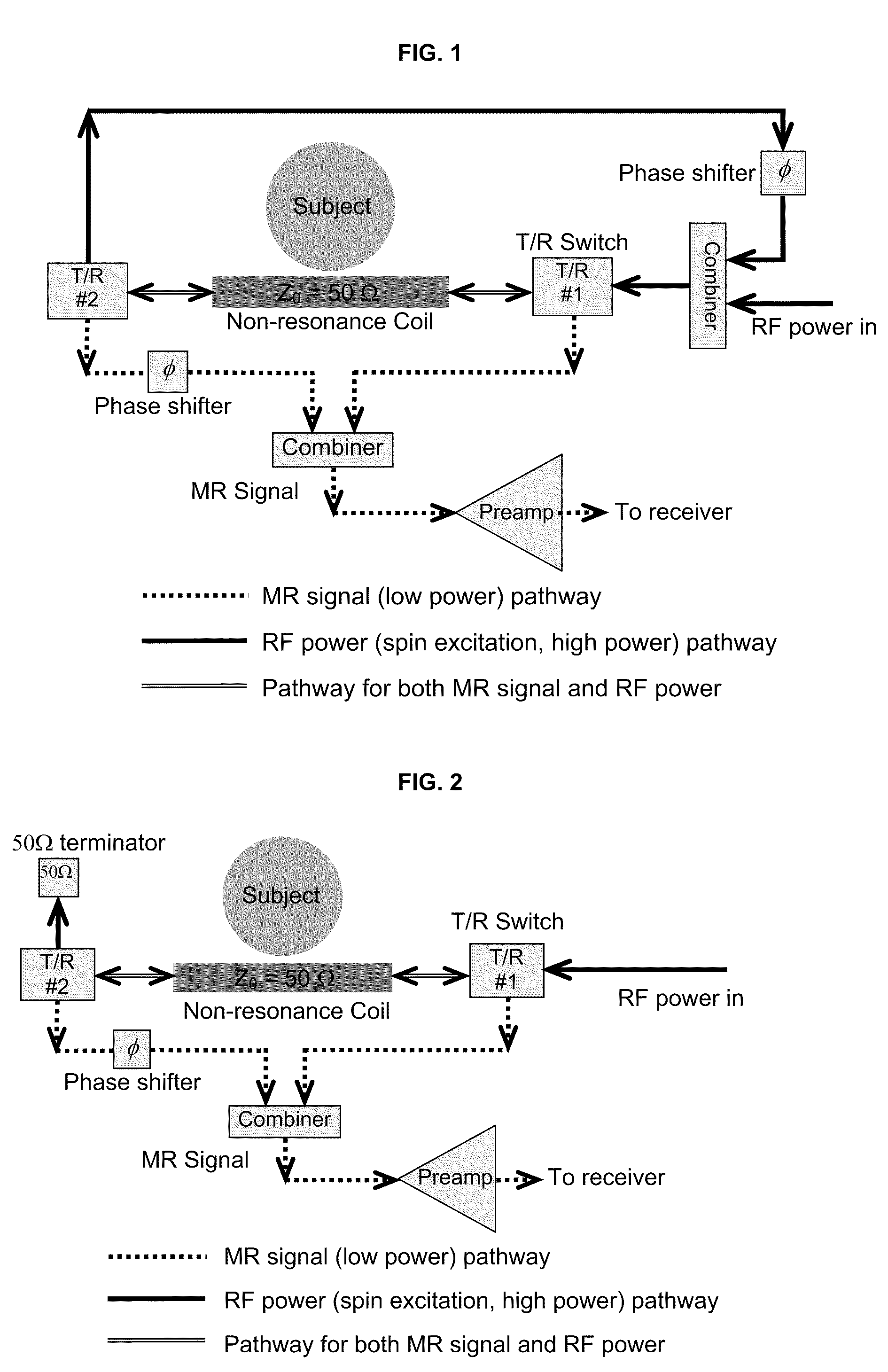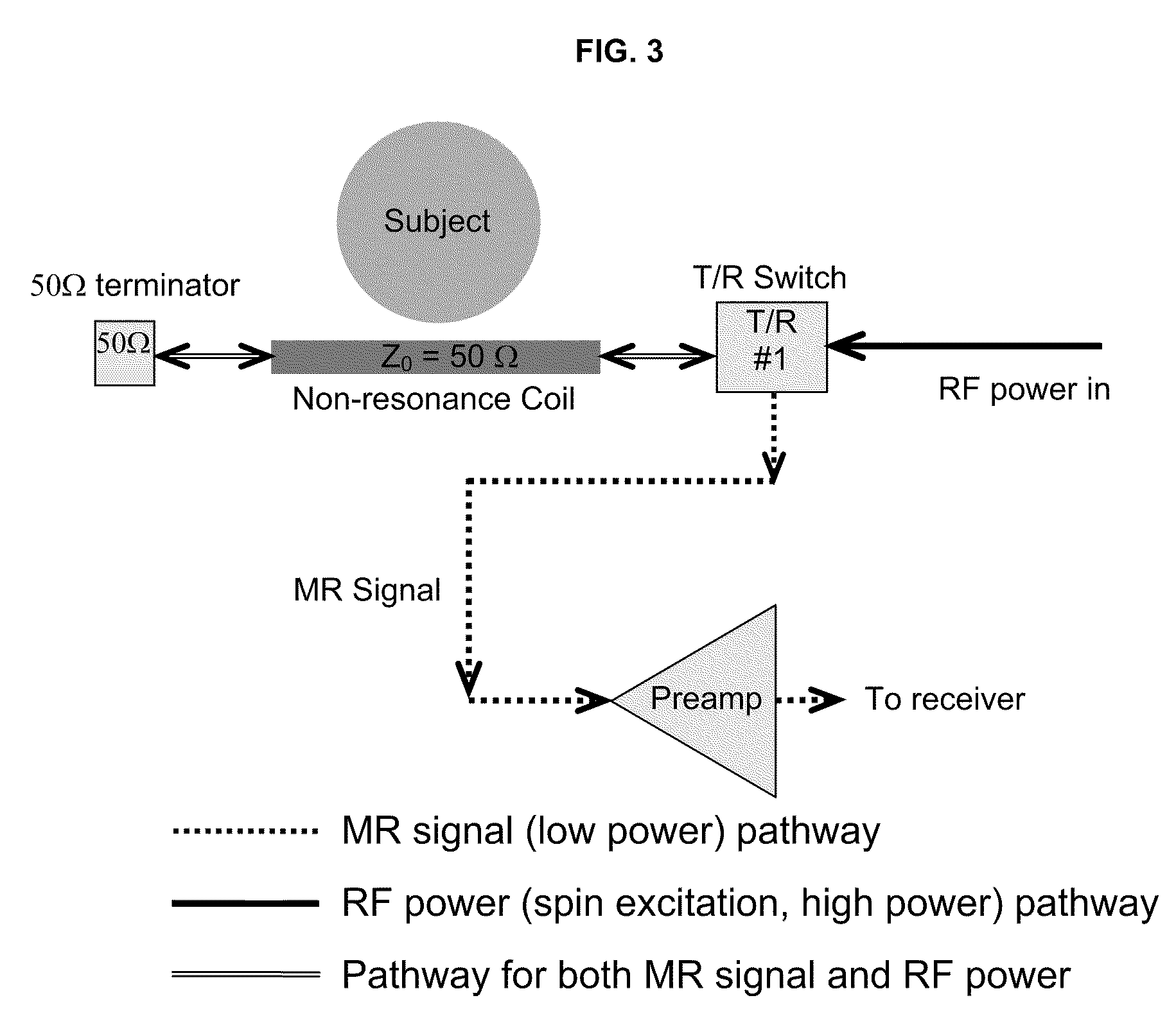Method and apparatus for MRI signal excitation and reception using non-resonance RF method (NORM)
a mri signal and non-resonance technology, applied in the field of mri signal excitation and reception using non-resonance rf method, can solve the problems of reducing the efficiency of mr signal excitation and reception, etc., to achieve the effect of reducing current fluctuations
- Summary
- Abstract
- Description
- Claims
- Application Information
AI Technical Summary
Benefits of technology
Problems solved by technology
Method used
Image
Examples
Embodiment Construction
[0020]The present inventions are directed to an RF coil solution using non-resonance RF coils for MR imaging and spectroscopy. “RF coil” is used herein to describe a device for creating an RF signal for MR imaging and includes, but is not limited to, conductive coils, microstrip transmission lines, and other RF devices as would be understood in the field of radiology and MR research. The non-resonance coil technique significantly simplifies the RF coil design and also overcomes numerous RF technical difficulties in designing high frequency coils, multiple tuned coils (for multi-nuclear MR applications) and parallel imaging coil arrays. We have demonstrated the non-resonance coil technology by 1H MR images, and 31P, 23Na and 13C spectra acquired using the non-resonant coil and the coil array. MR sensitivity (or signal-to-noise ratio, SNR) comparison has been also performed between the non-resonant coils and conventional resonant coils.
[0021]In various respects, the present invention ...
PUM
 Login to View More
Login to View More Abstract
Description
Claims
Application Information
 Login to View More
Login to View More - R&D
- Intellectual Property
- Life Sciences
- Materials
- Tech Scout
- Unparalleled Data Quality
- Higher Quality Content
- 60% Fewer Hallucinations
Browse by: Latest US Patents, China's latest patents, Technical Efficacy Thesaurus, Application Domain, Technology Topic, Popular Technical Reports.
© 2025 PatSnap. All rights reserved.Legal|Privacy policy|Modern Slavery Act Transparency Statement|Sitemap|About US| Contact US: help@patsnap.com



